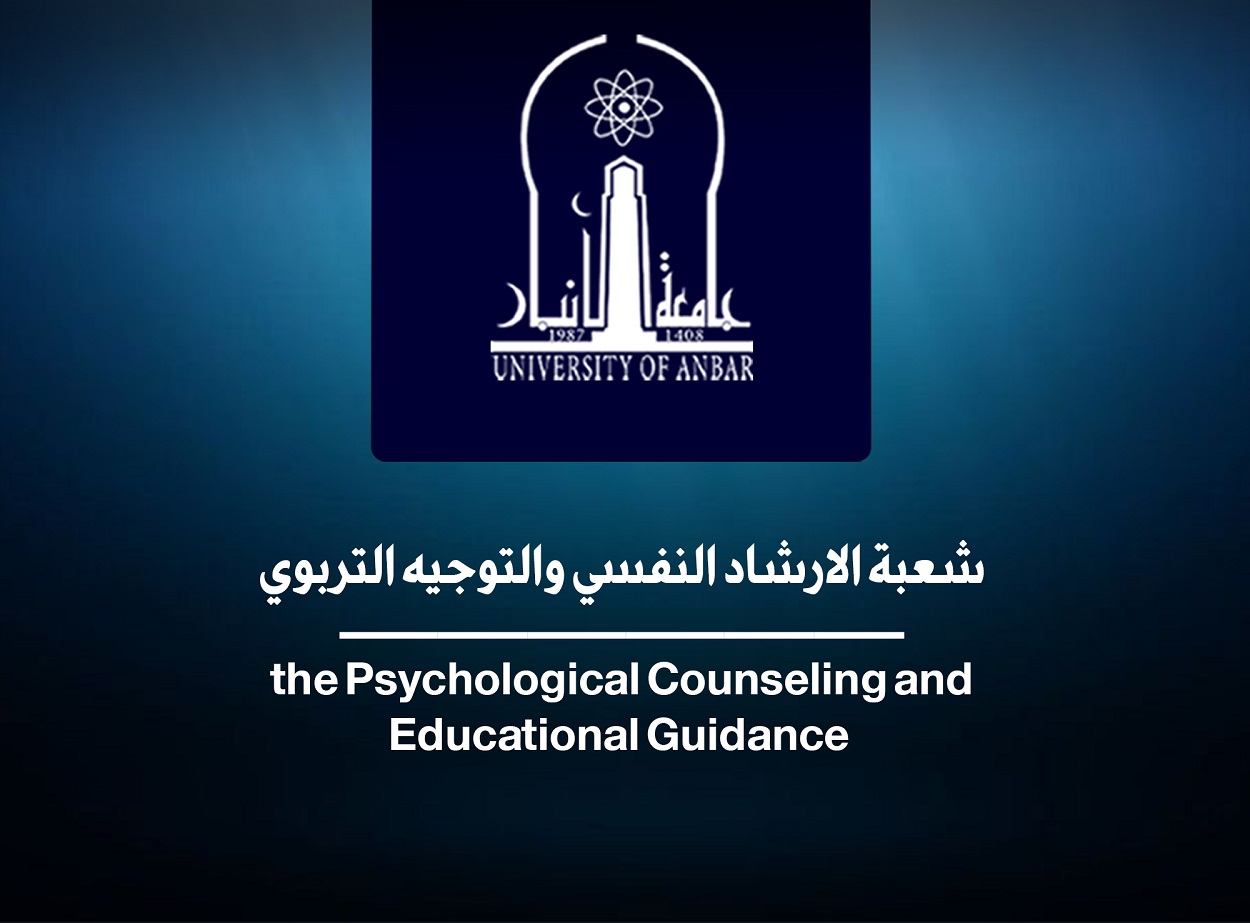
About
The Division of the Psychological Counseling and Educational Guidance works to help individuals and groups experiencing problems that hinder their development and progress. It promotes human development on the one hand and protects them from risks on the other. Counseling is of utmost importance because it addresses a significant segment of society: university students, who will become the leaders of society and are responsible for continuing the journey of development and progress.
The Psychological Counseling and Educational Guidance Division was established under university order no. (6471 on 16/8/2018). It actively contributes to comprehensive human resource development by providing training programs, services, educational and psychological consultations. This enhances the efficiency and effectiveness of students, teachers, administrators, and researchers while strengthening educational institutions in achieving their strategic goals. It also promotes professional and ethical performance quality across various sectors and advances psychological counseling theories and services to support educational, research, administrative, and professional institutions in improving their performance.
Organizational Structure
Psychological Counseling and Educational Guidance Division / Office of the University President
Duties
The responsibilities of the Psychological Counseling and Educational Guidance unit in Iraqi universities include :
1- Developing an annual plan for counseling programs and activities.
2- Proposing a dedicated budget for the unit from the college’s budget to finance required activities.
3- Enhancing the educational process and promoting mental health awareness through implemented activities done by the unit.
4- Coordinating directly with the Psychological Counseling and Educational Guidance Division at the university presidency / Vice President of the university for Scientific Affairs, to host psychological and educational experts during seminars and workshops that the unit holds.
5- Providing faculty and staff with consultations regarding student needs.
6- Encouraging the teaching staff to incorporate psychological and educational guidance to the students during lectures.
7- Orientating the new students toward specializations that match their abilities and personal traits as soon as they are admitted in the colleges with multiple disciplines, during preparing or applying the tests that renew the proper skills of every specialization to ensure the students motivation toward the study and the good qualification at their graduation.
8- Organizing expanded meetings for first-year students attended by the Dean, assistants, heads of depts., and unit members to guide students, outline their academic path during their study at the college, introducing them to the university norms and ethics inside the campus regulations, and insisting on the brotherhood and respect among students.
9- Working to discover and nurture gifted students through enrichment programs or various activities that contribute to developing their abilities and talents to the greatest extent possible.
10- Cooperating with teaching staff members to diagnose and treat students who suffer from academic procrastination, whether in one or more subjects.
11-Preparing workshops on proper behavior, identifying unwanted behavior, and how to stop insults, harassment, and slander.
12- Instilling university values, norms, and good behavior and conduct by emphasizing respect for teaching staff members, which is reflected in his behavior with family members.
13-Participating in assigning class counselors.
14- Holding periodic meetings for class counselors.
15- Introducing the students to classroom counselors, and their cooperation with liaison members to address problems early before they become complicated. The counselor provides the counseling unit with his cases, and the counselor meets directly with the student to address the case.
16- Conducting periodic meetings with students to help them reduce the problems and obstacles they face in the university environment and family and personal obstacles.
17- Organizing psychological counseling records in the counseling unit, including the status record, distinguished students, the needy, and children of martyrs.
18- Surveying college issues and identifying undesirable behavior among the students.
19- Organizing welcome events for new students and participating in outdoor activities.
20- It is necessary to coordinate with the Special Needs Students Care Committee at the university when there are students suffering from a disability, motor or visual impairment, based on the circular issued by the Scientific Supervision and Evaluation Authority no. (GTR/1781 on 6/28/2016) and the attached work guide for the Special Needs Students Care Committee, in order to overcome the difficulties facing them.
21-Implementing tests, scales, and guidance programs in coordination with the Psychological Counseling and Educational Guidance Division at the university, in order to serve guidance objectives such as the scale of exam anxiety, emotional balance, social intelligence, social responsibility, and awareness of the dangers of smoking and drug abuse, etc.
22-In case of an intractable psychological condition, a direct and immediate coordination is made with the Psychological Counseling and Educational Guidance Division at the university presidency to take the necessary action quickly.
23-The unit shall provide the division at the university with a unified annual report for each academic year that includes the completed activities carried out by the unit in the college or institute.
Staff
1- Inst. Dr. Munis Usama Dhiya'a Al-Din
2- Inst. Dr. Ahmed Ali Dayeh
3- Inst. Dr. Dhiya'a Juma'a Awda
4- Inst. Dr. Asia Mohammed Fahad
5- Asst. Inst. Hamza Ahmed Abid
6- Asst. Inst. Ibrahim Hassan Ali
7- Asst. Inst. Islam Khalaf Raja
8- Asst. Inst. Sumaya Hamad Anizi